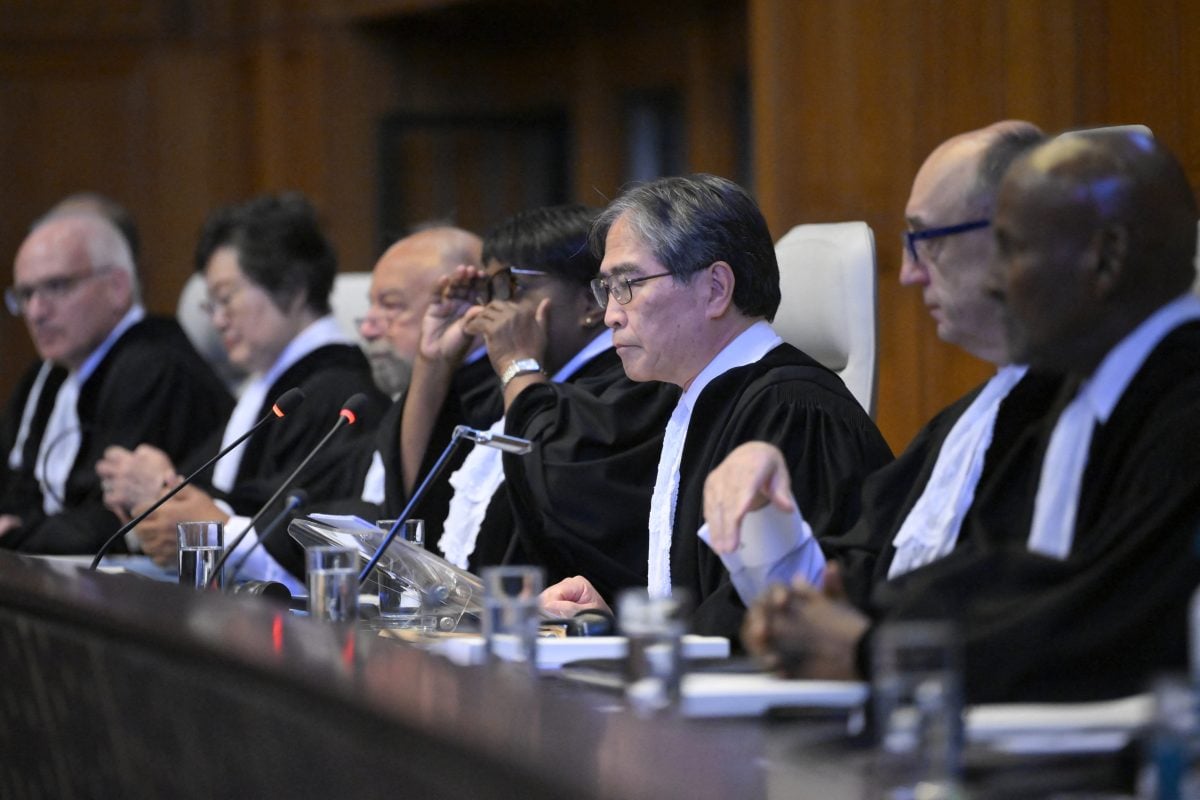A top UN court has ruled that countries can sue each other over the impacts of climate change. The landmark judgment at the International Court of Justice in the Hague will be welcomed in many African countries, which are disproportionately bearing the costs of climate change but have only limited responsibility for the emissions that fuel it.
African countries have long argued that the US, Europe and other major emitters must lead on reduction efforts and pay to defend poorer countries from climate change’s impacts. But the United Nations-led COP process has not delivered the transformative amounts of capital that are needed to shield the continent from the worst impacts of climate change. COP29 in Azerbaijan last year ended in acrimony. “We leave Baku without an ambitious climate finance goal, without concrete plans to limit the global temperature rise to 1.5 °C, and without the comprehensive support desperately needed for adaptation and loss and damage,” said Evans Njewa, chair of the least developed countries bloc at COP29. “This is not just a failure; it is a betrayal.”
Under the agreed text, governments set a goal for developed countries to support developing countries with at least $300bn a year in climate finance by 2035, but that figure was widely acknowledged to be only a fraction of the $1.2 trillion developing countries say is necessary. As we report in this issue, there are signs that African negotiators are losing faith in the process ahead of Cop30, which will be held in Belém, Brazil. With disillusionment setting in, could legal action offer an alternative route of redress?
Calling the lawyers
Developing countries are likely to be delighted that the court, which has global jurisdiction, has opened a route to legal responsibility for countries that are ignoring their climate obligations. In particular, they will be pleased that the judgment found that developing nations have a right to seek damages for the impacts of climate change such as destroyed buildings and infrastructure.
Furthermore, judge Iwasawa Yuji said that it could constitute a breach of promises under the landmark Paris Agreement if nations do not develop the most ambitious plans possible to tackle climate change. He also said that broader international law applies to countries to protect the environment and climate
system – meaning that countries like the US, which has given notice of its intention to leave the Paris Agreement – still have legal responsibilities.
Countries are also found to have responsibility for the companies that operate in them. Importantly, the judgment could also open the door to future legal cases in which developing countries seek compensation over wealthy countries’ historic responsibility for emissions. All of this will be welcomed by African countries. But the court’s decision is non-binding, and the judge ruled that untangling who caused which part of climate change would be difficult.
Future judgments would have to be on a case-by-case basis: for example, if an extreme weather event hit an African country, those seeking legal redress would have to prove that climate change caused it – a by-no-means simple task.
But, ultimately, lengthy and costly legal battles pitting developing nations against wealthy countries are in no one’s interest – apart from the lawyers who stand to profit from a torrent of litigation. After two years of being held in the oil hubs of Abu Dhabi and Azerbaijan, this year’s COP30 in Brazil, a ‘Global South’ country, offers a better chance to put the concerns of the developing world to the fore. With legal action on the horizon, wealthier nations should realise that it is in their interests – and Africa’s – to cut a much more ambitious finance deal before they are forced to do so.
Want to continue reading? Subscribe today.
You've read all your free articles for this month! Subscribe now to enjoy full access to our content.
Digital Monthly
£8.00 / month
Receive full unlimited access to our articles, opinions, podcasts and more.
Digital Yearly
£70.00 / year
Our best value offer - save £26 and gain access to all of our digital content for an entire year!

 Sign in with Google
Sign in with Google 



